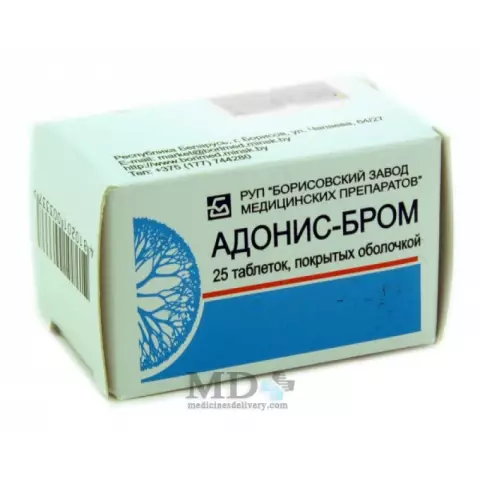- Author Rachel Wainwright wainwright@abchealthonline.com.
- Public 2023-12-15 07:39.
- Last modified 2025-11-02 20:14.
Aconite
Instructions for use:
- 1. Useful properties
- 2. Treatment
- 3. Contraindications
Useful properties of aconite

Aconite is a plant from the buttercup family. He is also called a fighter, a Dzungarian aconite, a grass king.
Aconite leaves and tubers are of interest for medicine. When preparing raw materials, it should be borne in mind that all parts of the aconite plant are poisonous, therefore, work should be done with gloves, without touching the eyes and mucous membranes.
Aconite roots are harvested from August to September, and the leaves during and before the flowering of the plant - in June-July. Properly dried aconite leaves should be dark green in color.
You can store dried raw materials for a year, marked "poisonous", separately from other harvested herbs.
The use of aconite in homeopathy, folk medicine has become widespread due to a wide range of useful properties of the plant: it has anesthetic, anti-inflammatory, healing, diuretic, sedative effect.
Aconite treatment
The aconite plant is not recognized by official medicine, but in folk medicine it is used for: arthritis, gout, radiculitis, sciatica, rheumatism, epilepsy, mental, nervous disorders, hysteria, neuralgia, incl. trigeminal neuralgia, with headaches, dizziness, Parkinson's disease, anemia, pulmonary tuberculosis, pneumonia, bronchial asthma, colds, tonsillitis, acute respiratory disease, blurred vision, worm infection, jaundice, constipation, flatulence, cystitis, dropsy, scarlet fever, malaria, syphilis, psoriasis, scabies. The aconite plant is also used for alternative cancer treatment.
Aconite in homeopathy is used in the form of a tincture of flowers, plant leaves. Due to the increased toxicity of the drug, the dosage is prescribed by a homeopathic doctor, after assessing the patient's condition. In homeopathy, aconite is prescribed for the same indications as an anti-inflammatory, analgesic, healing agent.
For the treatment of oncological diseases, you can prepare a tincture of aconite at home. Take one teaspoon of powder from the roots of aconite, pour in 500 ml of vodka and keep it in a dark room for two weeks, shaking it every day. Before use, the tincture is carefully filtered using a double-folded gauze.
After that, you can start treatment with aconite: one drop of the product is mixed with 50 ml of water (single dosage) and taken daily before meals three times a day. Every day, add 1 drop, bring to 10 drops per dose and so, 10 drops three times a day, take another 10 days. After that, the number of drops is started to be reduced and brought back up to one drop three times a day. After that, treatment with aconite is stopped for one month and then the course is taken again. Thus, seven therapeutic courses are carried out.

To relieve toothache, headache (including migraine), treat rheumatism, neuralgia, prepare another tincture: 20 g of Dzhungar aconite roots are poured into 0.5 liters of vodka and kept for a week.
With migraine, neuralgia, tincture of aconite begins to take one teaspoon at a time, gradually increasing the dosage to a tablespoon. The treatment lasts a month.
To eliminate toothache, one tablespoon of the tincture should be rubbed into the cheek on the side where the damaged tooth is.
For the treatment of rheumatism, the tincture is rubbed into the sore spot at night and wrapped in flannel.
Contraindications
Dzhungarian aconite is contraindicated in children, people with low blood pressure, pregnant women, lactating women.
After external application of aconite tincture, the container should be thoroughly washed with soap from under the product and by hand, avoid getting the tincture into the eyes, because it can blind a person.
In case of poisoning with aconite, you must immediately take a drug that induces vomiting, constantly drink a decoction of oak bark, or black coffee, or just warm water. They are effective in poisoning microclysters with hemp, linseed or olive oil and mustard applications on the legs and arms.
Information about the drug is generalized, provided for informational purposes only and does not replace the official instructions. Self-medication is hazardous to health!






